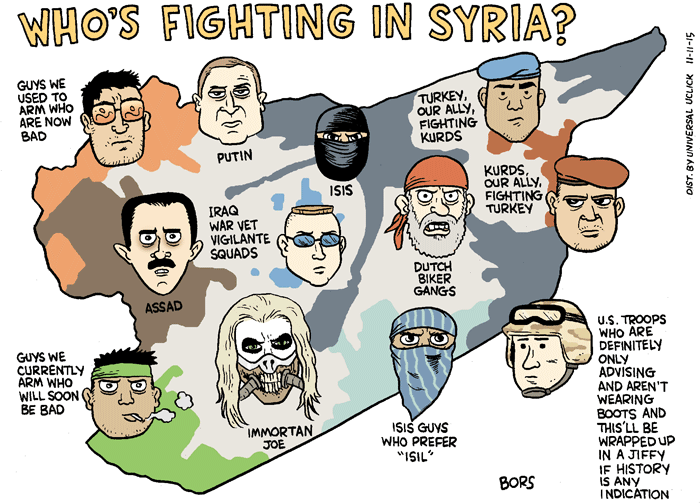
The announcement early today that an agreement has been reached to deliver humanitarian aid to besieged Syrian cities, to be followed by a “cessation of hostilities” within seven days, is obviously a welcome development in a civil war that has dragged on since 2011.
With nearly a half million killed, and some 45 percent of the country’s population driven from their homes, according to a report from the Syrian Center for Policy Research, this is a humanitarian disaster to rank with the worst of them. But there are all kinds of reasons to doubt that the agreement announced today will deliver much, if any, of what it promises.
For one thing, too much remains unresolved. Like the future role of Syrian President Bashar Assad or whether all of the groups fighting against the Syrian regime should be considered terrorists or a legitimate opposition. Russia and the United States, architects of the deal hammered out in Munich (Oh the irony!), disagree on both points. Putin wants Assad to stay in power, Obama wants him gone. The US backs several moderate anti-Assad groups, Russia bombs them all.
Crucially, none of the groups fighting on the ground, not the Syrian government nor any of the rebels, have signed on to the agreement. They weren’t even involved in drafting it. That was the work of the Americans and Russians with backing from the UN and European Union.
Assuming the combatants do sign on, the cessation – not a ceasefire which would be more permanent – would not go into effect for another week, giving the Syrian military, backed by Russian airpower, plenty of time to extend and solidify their recent gains around the strategic city of Aleppo, the putative capital of the opposition which may well fall to the regime. In the meantime, the bombs continue to fall.
Finally, the sheer complexity of the constellation of groups fighting the war, and their mixed and conflicting motives and objectives, will make it exceedingly difficult, if not impossible, for any negotiated settlement to satisfy them all. Even without Immortan Joe or Danish biker gangs added to the mix.
That brings us right back to victory on the battlefield as the only thing likely to bring the Syrian war to an end. And if that’s the case, given realities on the ground, the end will come at the rebels’ expense, leaving Assad in power and Russia reinvigorated as a player on the global stage.
To get a flavor of the some of the people who will probably end up on the wrong side of any settlement which leaves Assad in power, take half an hour out of your day and watch the short film below by Brooklyn-based photographer Joseph Lawrence.